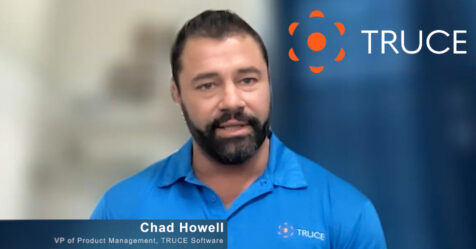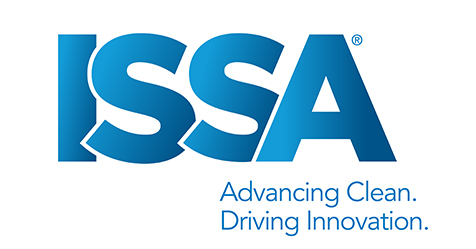Healthcare organizations have a new reason to be concerned about how their patients perceive the cleanliness of hospitals and patient rooms.
One of the aspects of improving the healthcare system for Americans through the Affordable Care Act passed into law in 2010 is an initiative that sets up a reward system for hospitals that focus on quality of care and maintain high levels of patient satisfaction.
As part of a bigger initiative called the Partnership for Patients, this focus on the quality of care will actually affect how hospitals are paid for Medicare patients.
The Centers for Medicare & Medicaid Services links patient feedback to Medicare payments by doling out bonus funding to hospitals with higher scores (and withholding one percent for those with lower scores) on Hospital Consumer Assessment of Healthcare Providers and Systems (HCAHPS) surveys.
Patients are surveyed randomly on 10 questions, one of which focuses on room and bathroom cleanliness.
While Medicare has been publishing patient satisfaction scores on its Hospital Compare website since 2008, it hasn’t used the scores to adjust payments to hospitals based on performance until now.
I recently spoke to Beatrix Babcock, partner at HCI Consulting Group, about this issue and how she is addressing it with her housekeeping clients in hospital facilities.
“I have been getting more calls because of the sixth question on the survey,” Babcock said. “The question is ‘How often were your room and bathrooms kept clean — Never, sometimes, usually or always?’”
She said that this is the first time a cleaning-related question has appeared on the survey, and many hospitals are not prepared to deliver the quality of cleaning required to achieve a high score.
The nationwide average percentage of patients who answered “always” for this question is 73 percent.
“Many hospitals are operating with the mindset that minimal training is required for housekeeping staff because ‘everyone knows how to clean,’” Babcock said. “Workers may or may not get trained on how to use chemicals or how to do tasks and they have a limited period of time during which they can clean a patient room.”
The lack of training and focus on cleaning standards combined with the pressure to clean quickly sets hospitals up for not only poor patient satisfaction scores, but cross-contamination and an increased risk for hospital-acquired infections (HAIs), Babcock added.
To help hospitals increase the quality of cleaning, protect patients’ health and increase their satisfaction, Babcock works with housekeeping staff to set cleaning standards, identify and assign risks and train workers on proper cleaning techniques tailored for health care environments.
Set The Standard
The ISSA Cleaning Industry Management Standard (CIMS) works well as a guide for health care organizations as well as other types of organizations to develop an internal cleaning standard.
“It is important to have an in-house comprehensive cleaning standard and a definition for what is clean,” Babock said.
Organizations can define clean by developing a scope of work, identifying appearance levels and documenting specific tasks (step-by-step) and frequencies.
A detailed cleaning standard serves as a starting point and a place from which housekeeping staff can measure cleaning performance.
Assign Risks
“Each area in the hospital should be assigned a risk factor,” Babcock said.
“For instance, high risk areas include areas with patients who have open wounds or who are really sick and labor and delivery. These areas require special attention and should be made a priority when training housekeeping employees.”
Assigning risk factors to each area also helps workers manage the amount of time and attention given to each area.
Train Staff
Training is critical for many reasons, Babock noted.
“Training helps build a motivated team, reduces turnover, increases productivity, protects the health of patients and building occupants, contributes to the improvement of HCAHPS scores and increases the likelihood of Medicare reimbursement,” she said.
Babcock works often with hospital housekeeping staffs to improve training programs and recommends hospitals follow written, step-by-step task procedures (documented in the organization’s standard development process) for training. But the most important part of training is hands-on learning.
“Training managers need to get on the floor with small groups, demonstrate procedures and then ask workers to return the demonstration,” Babock said.
She also advises managers to give workers laminated instruction cards that they can keep on their carts illustrating procedures step-by-step.
Focus On Quality
Frequent quality inspections will help ensure housekeeping procedures are being followed.
A few inspection tools hospitals can use to measure cleaning quality (or presence of bacteria/infection) include: Adenosine triphosphate (ATP) monitoring; use of black lights and/or fluorescent products detected by black lights; and cultures.
Inspections reveal how well areas are being cleaned and can identify the need for additional training.
This will keep hospitals focused on delivering quality cleaning, which will reduce the spread of infection, improve patients’ perception of hospital cleanliness (and HCHAPS scores) and increase the likelihood of Medicare reimbursement.
Dave Frank is a 30-year industry veteran and the president of the American Institute for Cleaning Sciences (AICS). AICS is the registrar for ISSA’s Cleaning Industry Management Standard (CIMS) certification program.


